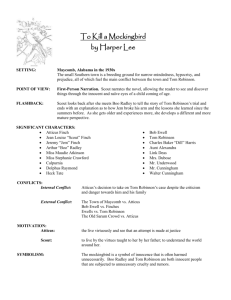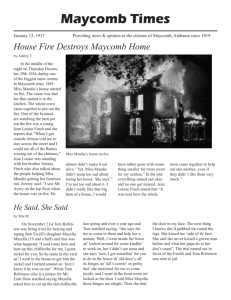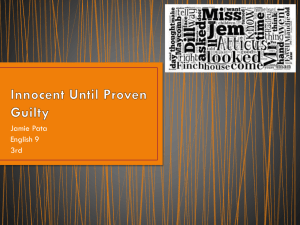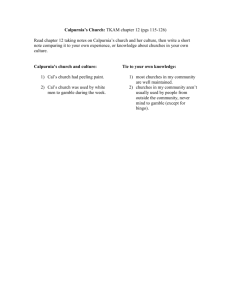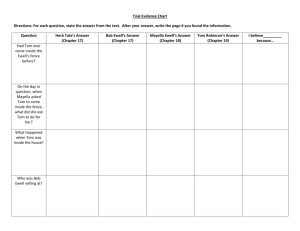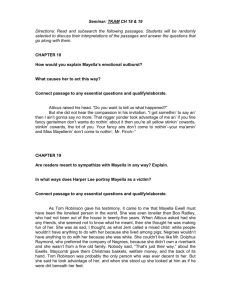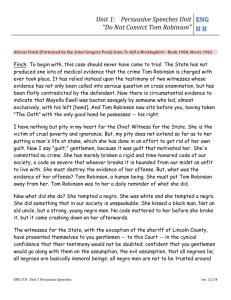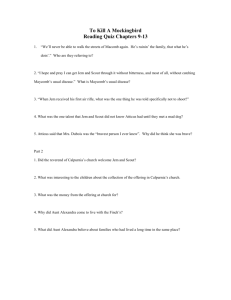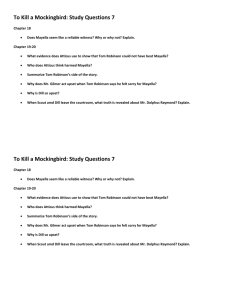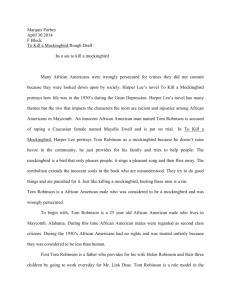RACISM Scenes and characters that show the theme Quotes and
advertisement
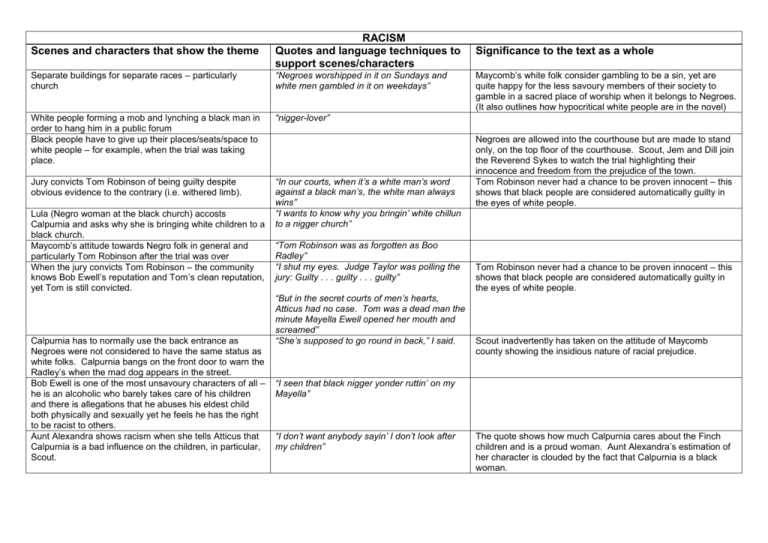
Scenes and characters that show the theme RACISM Quotes and language techniques to support scenes/characters Separate buildings for separate races – particularly church “Negroes worshipped in it on Sundays and white men gambled in it on weekdays” White people forming a mob and lynching a black man in order to hang him in a public forum Black people have to give up their places/seats/space to white people – for example, when the trial was taking place. “nigger-lover” Jury convicts Tom Robinson of being guilty despite obvious evidence to the contrary (i.e. withered limb). “In our courts, when it’s a white man’s word against a black man’s, the white man always wins” “I wants to know why you bringin’ white chillun to a nigger church” Lula (Negro woman at the black church) accosts Calpurnia and asks why she is bringing white children to a black church. Maycomb’s attitude towards Negro folk in general and particularly Tom Robinson after the trial was over When the jury convicts Tom Robinson – the community knows Bob Ewell’s reputation and Tom’s clean reputation, yet Tom is still convicted. Calpurnia has to normally use the back entrance as Negroes were not considered to have the same status as white folks. Calpurnia bangs on the front door to warn the Radley’s when the mad dog appears in the street. Bob Ewell is one of the most unsavoury characters of all – he is an alcoholic who barely takes care of his children and there is allegations that he abuses his eldest child both physically and sexually yet he feels he has the right to be racist to others. Aunt Alexandra shows racism when she tells Atticus that Calpurnia is a bad influence on the children, in particular, Scout. “Tom Robinson was as forgotten as Boo Radley” “I shut my eyes. Judge Taylor was polling the jury: Guilty . . . guilty . . . guilty” “But in the secret courts of men’s hearts, Atticus had no case. Tom was a dead man the minute Mayella Ewell opened her mouth and screamed” “She’s supposed to go round in back,” I said. Significance to the text as a whole Maycomb’s white folk consider gambling to be a sin, yet are quite happy for the less savoury members of their society to gamble in a sacred place of worship when it belongs to Negroes. (It also outlines how hypocritical white people are in the novel) Negroes are allowed into the courthouse but are made to stand only, on the top floor of the courthouse. Scout, Jem and Dill join the Reverend Sykes to watch the trial highlighting their innocence and freedom from the prejudice of the town. Tom Robinson never had a chance to be proven innocent – this shows that black people are considered automatically guilty in the eyes of white people. Tom Robinson never had a chance to be proven innocent – this shows that black people are considered automatically guilty in the eyes of white people. Scout inadvertently has taken on the attitude of Maycomb county showing the insidious nature of racial prejudice. “I seen that black nigger yonder ruttin’ on my Mayella” “I don’t want anybody sayin’ I don’t look after my children” The quote shows how much Calpurnia cares about the Finch children and is a proud woman. Aunt Alexandra’s estimation of her character is clouded by the fact that Calpurnia is a black woman.
